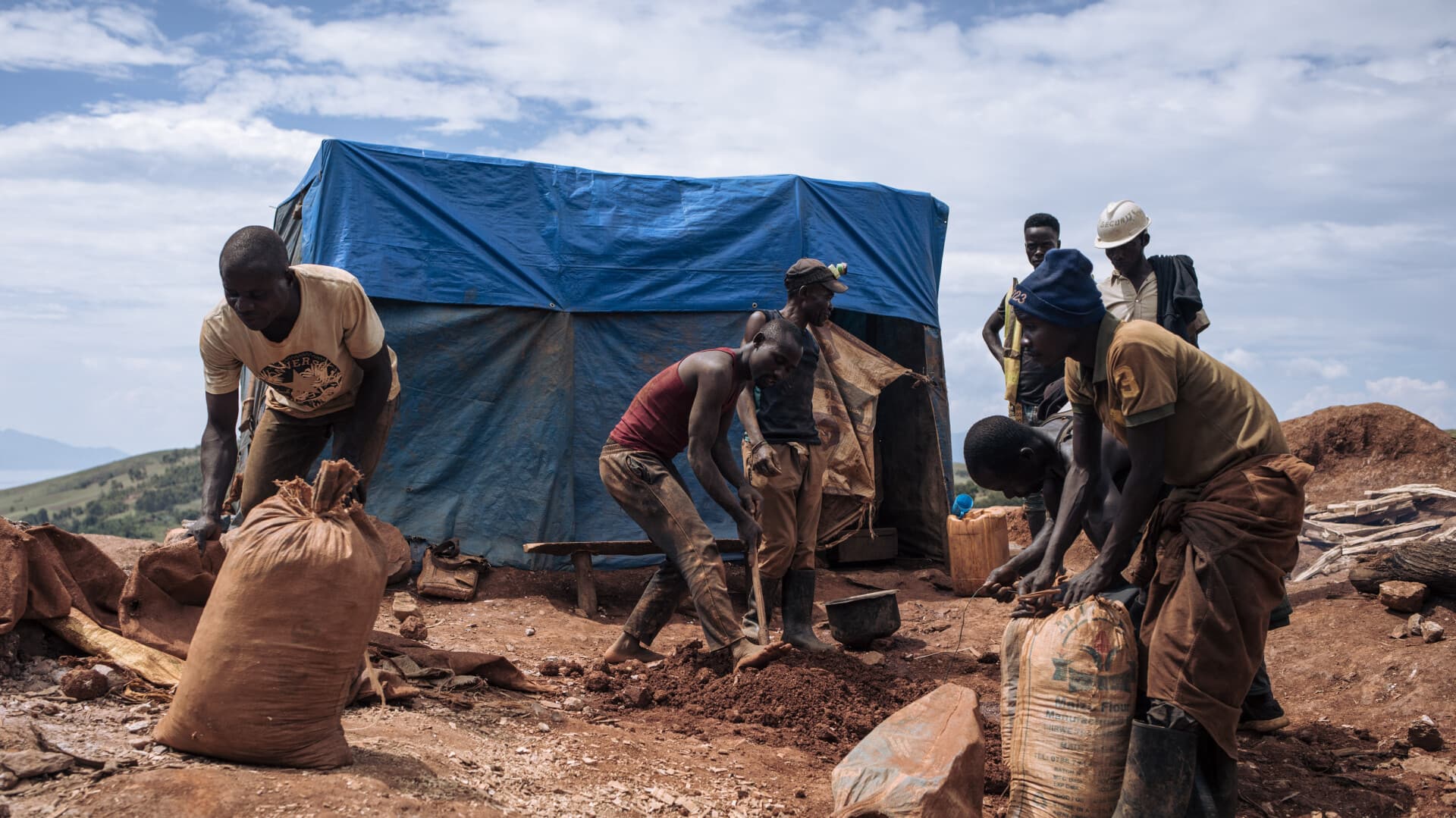
Why Congo has filed complaints against Apple over 'conflict minerals'
What's the story
The Democratic Republic of the Congo (DRC) has filed legal complaints against Apple's subsidiaries in France and Belgium. The charges stem from the alleged use of "conflict minerals" in Apple's supply chains. The minerals, as defined by the Organisation for Economic Co-operation and Development (OECD), include tantalum, tin, tungsten, and gold sourced from conflict-affected areas like the DRC, Sierra Leone, and Venezuela.
Conflict background
DRC's conflict-ridden history with mineral exploitation
The eastern DRC, rich in these minerals called 3TGs, has been a hotbed of violence for over three decades. Several armed groups are reportedly competing to control the mines, often forcing workers into unpaid labor and smuggling minerals through countries such as Rwanda. The profits from these minerals are believed to fund the activities of these armed groups, thereby perpetuating conflict in the region. They are also exported legally to big companies like Apple.
Report
Tantalum used to make capacitors for cell phones, computers
The US Government Accountability Office (GAO) said in a report in October that four conflict minerals—tantalum, tin, tungsten, and gold—are used by many businesses worldwide. For example, the Rubaya region produces 15% of the world's tantalum, the metal into which coltan is converted for use in the manufacture of mobile phones and laptops. Tantalum is generally used to make capacitors for cell phones, computers, and jet engine turbines, while tungsten is utilized in light bulbs, cars, and cutting instruments.
Supply chain scrutiny
Investigation into Apple's supply chain and conflict minerals
"The price of exported coltan was between $39 and $43 per kilo between January and May 2024, according to the Rwandan central bank." "Through this money, rebel groups like M23 buy weapons, for example, and have prolonged the war in DRC," Alex Kopp, senior campaigner at the Global Witness NGO's transition minerals team, told Al Jazeera. The DRC's investigation into Apple's mineral sourcing practices was initiated after President Felix Tshisekedi consulted lawyers from Amsterdam & Partners LLP.
Legal proceedings
Apple's response to allegations and ongoing legal proceedings
The law firm is representing the country in the conflict minerals case. In April, the lawyers contacted Apple CEO Tim Cook after their probe revealed Apple's supply chain could be "tainted by blood minerals pillaged from the country [DRC]." Apple has denied these allegations, claiming they have instructed suppliers to stop sourcing from the DRC and Rwanda amid increasing conflicts. The tech giant claims their products use recycled minerals and their supply chain doesn't fund armed groups.
Wider implications
EU regulations and potential involvement of other companies
The case is being prosecuted in Europe owing to EU regulations on responsible sourcing of 3TG minerals. These rules seek to break the connection between conflict and illegal mineral exploitation. The DRC's legal team has also reached out to European Commission President Ursula von der Leyen for accountability measures. Meanwhile, Global Witness has flagged other companies possibly ending up with conflict minerals, including Intel, Samsung, Nokia, Motorola, and Tesla.